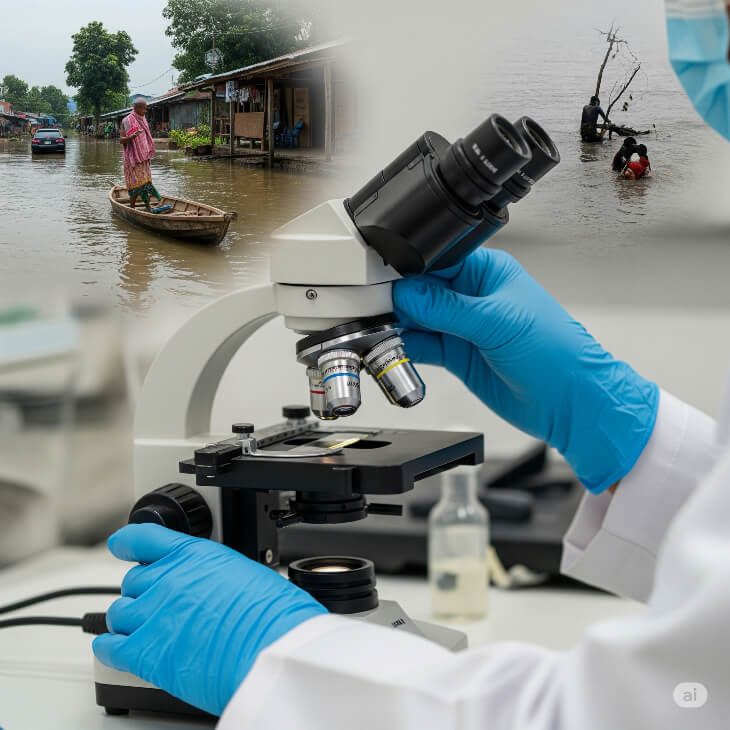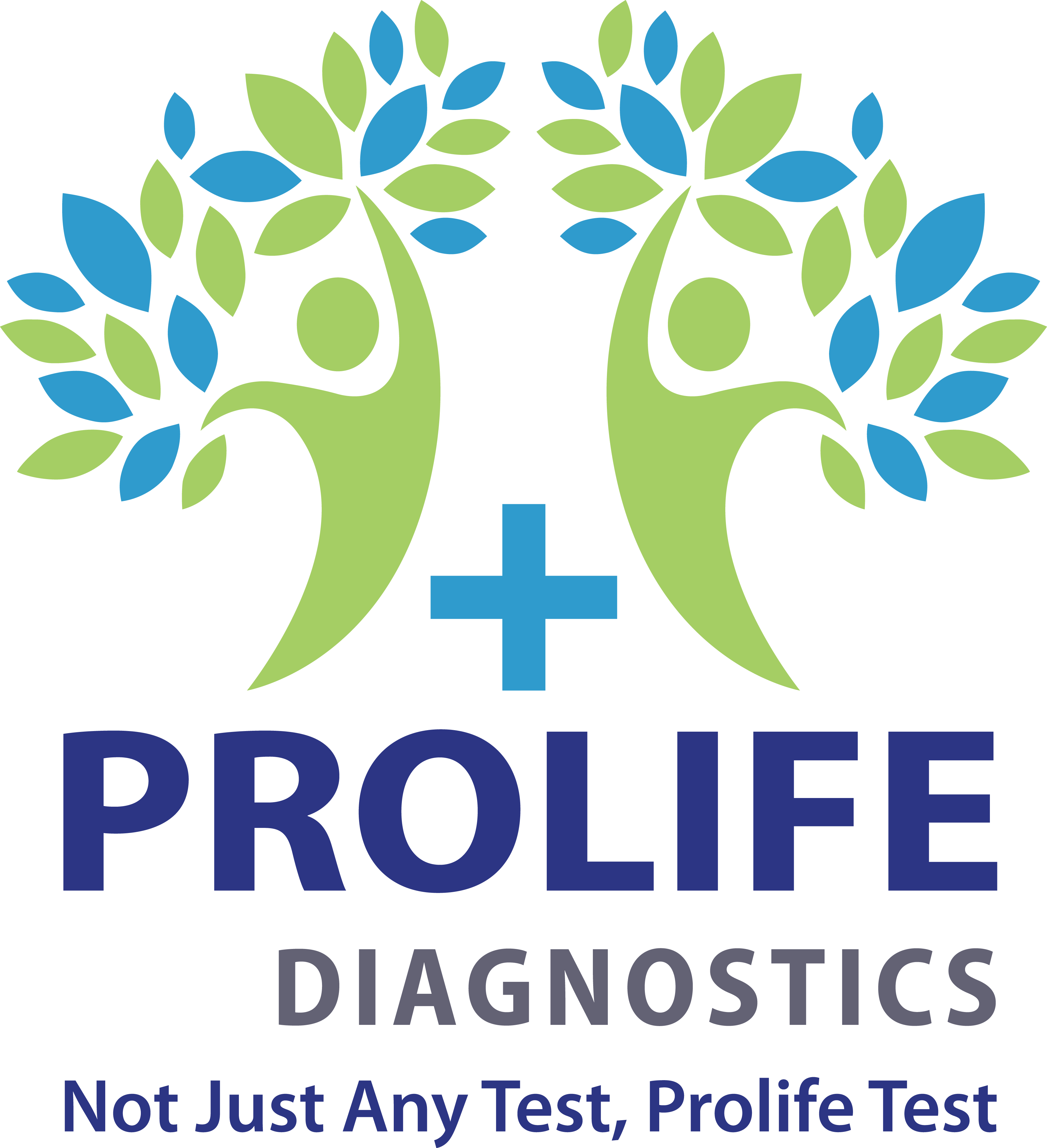- Plot No. 361/3074 & Plot No 437/3134, Patrapada, BBSR
- +91 9040017001
- +91 8630400500
What is Cholera? Causes, Symptoms, Prevention & Treatment Explained
Cholera, commonly known as Cholera, is a dangerous disease that spreads mainly through dirty water and unhygienic food. It causes severe diarrhea and dehydration, which can become life-threatening if not treated quickly.
Let’s understand everything from A to Z about Cholera – its signs, reasons, prevention, and how to treat it.
What is Cholera Disease?
Cholera is a bacterial infection caused by Vibrio cholerae. It affects the digestive system, especially the intestines, and leads to sudden watery diarrhea, which can result in loss of body fluids and salts.
- It is common in places where there is unclean drinking water, poor sanitation, and lack of hygiene.
- It can spread rapidly and affect many people in a short time, especially during monsoon or floods.

How Does Cholera Spread?
Cholera spreads mainly through the oral route, when a person eats or drinks something contaminated.
- Drinking untreated or dirty water (like pond water, river water, or unfiltered tap water).
- Eating food that is not covered, especially street food or food touched by flies.
- Consuming raw or unwashed vegetables and fruits.
- Not washing hands after using the toilet or before eating.
What Are the Symptoms of Cholera?
Symptoms start within a few hours to two days after the person gets infected.
Major symptoms include:
- Frequent watery diarrhea that looks like rice water
- Vomiting, sometimes with stomach pain
- Severe dehydration – dry mouth, sunken eyes, dry skin
- Muscle cramps, especially in arms and legs
- Tiredness and weakness
- Feeling very thirsty
- Low blood pressure and fast heartbeat
- If not treated, can cause shock and even death
Who Is at Higher Risk?
- Children under 5 years, due to weak immune systems
- Elderly people
- Pregnant women
- People living in slum areas, villages, or places with poor drainage
- People living in flood-affected or disaster-hit regions
How to Confirm It’s Cholera? (Diagnosis)
To confirm Cholera, a doctor may advise the following tests:
- Stool test – to detect the cholera bacteria
- Blood test – to check levels of sodium, potassium, and other electrolytes
- Physical examination – to see the level of dehydration
Home Care Tips (Only for Mild Cases)
If the symptoms are not very severe, you can start home care immediately.
- Give ORS (Oral Rehydration Solution) – available at any medical store.
- Make homemade ORS – Mix 1 litre of boiled and cooled water with 6 teaspoons of sugar and ½ teaspoon of salt.
- Give light and easily digestible food like khichdi, curd rice, or plain boiled rice.
- Avoid oily, spicy, and raw food.
- Give tender coconut water, soups, and fruit juices to keep the patient hydrated.
🛑Important: If symptoms continue or worsen, visit a doctor immediately.
Medical Treatment for Cholera
For moderate to severe cases, medical treatment is necessary.
- The patient may need admission to hospital.
- IV fluids (saline) are given to treat dehydration fast.
- Antibiotics like doxycycline or azithromycin are given to stop the infection – only on doctor’s advice.
- The patient is monitored regularly for pulse, blood pressure, and urine output.
- In severe cases, intensive care may be required.
How to Prevent Cholera Disease?
Prevention is better than cure. By following these basic hygiene and food safety habits, you can keep Cholera away:
✅ Safe Drinking Water
- Always boil water before drinking or use water purifiers.
- Do not drink from open sources like ponds or rivers.
- Carry your own bottle of filtered water when going outside.
✅ Food Hygiene
- Always wash fruits and vegetables before eating.
- Avoid street food and uncooked food.
- Make sure food is fresh and covered.
✅ Hand Hygiene
- Wash your hands properly with soap and clean water:
- Before eating
- After using the toilet
- After cleaning children or handling waste
What to Do During a Cholera Outbreak?
- Drink only clean, treated water – use chlorine tablets if available.
- Avoid eating food from public gatherings, fairs, or roadside stalls.
- Use ORS regularly if diarrhea begins.
- Inform local health authorities about the outbreak.
- Follow government health guidelines and keep your surroundings clean.
Is There a Vaccine for Cholera?
Yes. In high-risk areas, oral cholera vaccines like Shanchol or Dukoral are provided by government or NGOs.
- These vaccines provide temporary protection and are mainly used during outbreaks or in high-risk communities.
- Always check with your nearest health center.
Things You Must Remember
- Early treatment saves lives.
- Do not take diarrhea lightly, especially if it is watery.
- Children and old people should get immediate care.
- Home treatment is not enough in moderate or severe cases.
How to Stay Safe in the Long Term?
- Build and use proper toilets – avoid open defecation.
- Teach children to wash hands regularly.
- Maintain clean kitchen and cooking areas.
- Keep drinking water in covered containers.
Common Myths vs Facts AboutCholera
|
|
Cholera spreads through air | It spreads through dirty water and food |
Only poor people get it | Anyone can get Cholera if exposed |
Cholera goes away on its own | It can become dangerous if not treated |
You should stop eating if you have diarrhea | You must keep taking fluids and light food |
When Should You Visit a Doctor?
- If diarrhea is frequent and watery
- If the patient is vomiting continuously
- If there are signs of dehydration – dry mouth, sunken eyes, weakness
- If the patient is a small child, pregnant lady or elderly person
- If symptoms don’t improve with ORS and home care
Final Advice
Cholera is dangerous but completely preventable and treatable. With clean water, proper hygiene, and awareness, we can stop its spread and save lives.
FAQs on Cholera Disease
Q: Can Cholera spread from person to person?
👉 No, it doesn’t spread through air or touch, but through contaminated water or food.
Q: How long does it take to recover?
👉With proper care, mild cases recover in 2–3 days; severe cases may take a week.
Q: Can I treat Cholera at home?
👉Only mild cases can be managed with ORS at home. In serious cases, visit the hospital immediately.
Conclusion: Awareness is the First Step to Prevention
By keeping our environment clean, drinking safe water, and spreading awareness, we can protect our families and communities from Cholera disease.
Our Message
At Prolife Diagnostics, we believe that:
“Informed citizens are the first line of defense against infectious diseases.”
We encourage you to stay alert, maintain hygiene, and spread awareness about Cholera. Early detection saves lives.
Share & Educate
If you found this blog useful, share it with friends and family, especially in rural areas. Together, we can fight Cholera with awareness, hygiene, and timely care.
Discover More About Your Health







 Myth
Myth Fact
Fact